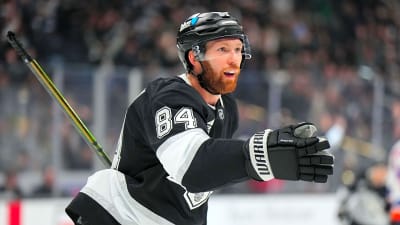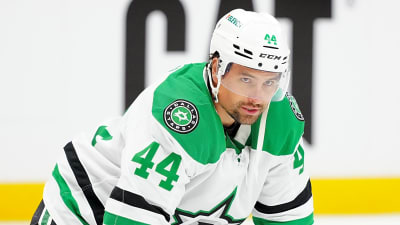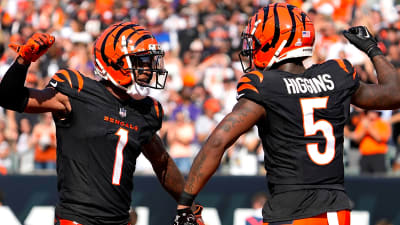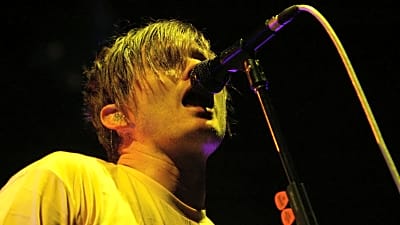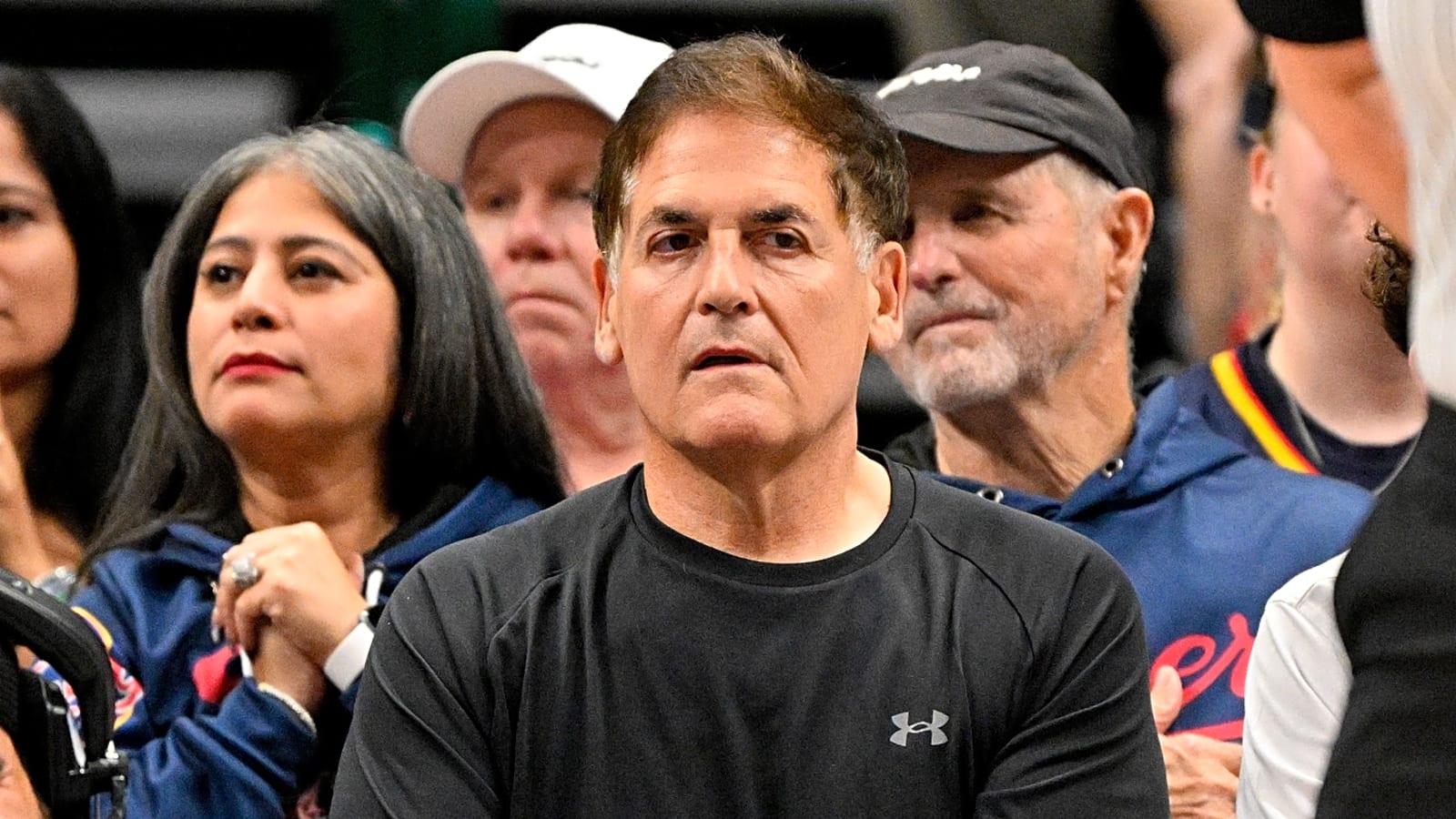
Former Dallas Mavericks majority owner Mark Cuban believes the team is well-positioned for long-term success despite the challenges of the NBA’s new financial landscape.
Speaking Friday during Cooper Flagg’s introductory press conference, Cuban praised team president and general manager Nico Harrison for managing the salary cap constraints that have forced other contenders to offload star talent.
“The good news is that the front office has done a great job of putting together a team where we can compete,” Cuban said. “A couple of breaks – Kyrie comes back, Cooper is who we expect him to be – we could have a really, really good team.”
Cuban, who still owns 27 percent of the franchise and remains involved in team matters, pointed to the team’s ability to avoid harsh penalties triggered by the second apron of the collective bargaining agreement.
“You look at a lot of teams right now, they’re blowing up their teams. They’re dropping bombs on their teams because of the second apron,” Cuban said. “We’ve got our guys locked up and with the way the cap’s going to move, we should be in really good shape.”
Cuban said the team gained access to the taxpayer mid-level exception this offseason through Harrison’s negotiations, including a new contract agreement with Kyrie Irving.
“Nico and Kyrie have had a strong enough relationship that they were able to work together to give us a little wiggle room to have somebody to fit in when Kyrie is out,” Cuban said. “So for all the hell that Nico has gotten, he’s done a great job of putting us in a really good position.”
Roster and Cap Mismanagement
Putting aside the Luka Dončić trade, Harrison’s recent decision-making history deserves less credit.
Dallas wouldn’t have needed Irving to take less money this summer had the team moved Quentin Grimes ahead of restricted free agency in exchange for Caleb Martin. That deal could have preserved an open roster spot or at least allowed for a sign-and-trade elsewhere. Instead, Martin is slated to earn nearly $9.2 million in 2025–26 — more than double Grimes’ $4.3 million figure.
The Mavericks’ trade for Martin had immediate negative ramifications. It hard-capped the team at the first apron with only 14 players. When injuries hit, Dallas was left without a traditional center for extended stretches — an avoidable scenario for a self-proclaimed contender.
Additionally, Dallas parted with what became the 35th overall pick in the NBA Draft, packaged with Grimes, despite the league giving the Mavericks a chance to rescind the deal. Instead, they pressed forward with an injured player who took weeks to play and ultimately made no impact.
A Year of Short-Term Gaps and Long-Term Cost
While injuries are often unpredictable, the front office’s personnel decisions created compounding problems. Dereck Lively II and Dwight Powell were already sidelined when Anthony Davis was given the power to determine whether he’d play through an injury that worsened before he finished his debut. Daniel Gafford then went down, and Dallas was left without a playable center, starting two-way wing Kessler Edwards at the five.
To their credit, the Mavericks eventually landed Kai Jones on a two-way contract, and he contributed. But before that, they cycled through Kylor Kelley and Moses Brown in a scramble to fill holes. Due to their inability to sign a 15th player, Dallas exhausted the two-way eligibility of both Brandon Williams and Kessler Edwards. Williams couldn’t be converted to a standard deal until April 10.
Other missteps linger. JaVale McGee — Harrison’s first use of the taxpayer mid-level exception — cost Dallas $2.2 million last season, not to play. Meanwhile, Jaden Hardy’s contract extension added $6 million to the 2025–26 cap sheet, more than D’Angelo Russell, who will start while Irving recovers from ACL surgery.
Also, Olivier-Maxence Prosper, the No. 24 pick in 2023, doesn’t appear to be in the mix amid a wing logjam. The roster sits at 15 players. The Mavericks took on Richaun Holmes‘ contract to land Prosper.
From a macro view, Dallas has spent heavily on role players before having to clean up mistakes. The team used first-round picks to acquire Christian Wood and Grant Williams, who were gone within a year. To fix those gaps, the Mavericks later spent more capital to acquire Gafford and P.J. Washington.
Following next year’s draft, Dallas does not control its first-round pick again until 2031. By then, Irving will be 39 and Davis 38.
Cooper Flagg Is the Reset — But the Margin for Error Is Thin
Winning the No. 1 pick despite a 1.8% chance may have salvaged the Mavericks from a failed all-in push around Dončić. That gamble — aimed at skipping steps for short-term contention — was derailed in Year 1.
The focus shifts to Flagg, but it comes with a depleted asset pool and roster logjam on the wing. The organization must be sharp and calculated in its next phase.
“We’re in win-now mode, and we have a really good team, and Cooper adds to that,” Harrison said. “So I think the fans finally start to see the vision.”
It’s a hopeful vision, but one that will only become reality if the front office avoids the mistakes of its recent past.
More Dallas Mavericks & NBA Articles
More must-reads:
- Bucks make two shocking moves in free agency
- LeBron James' agent reportedly provided notable update on trade market
- The 'Multi-time NBA MVPs' quiz
Breaking News
Trending News
Customize Your Newsletter
 +
+
Get the latest news and rumors, customized to your favorite sports and teams. Emailed daily. Always free!
